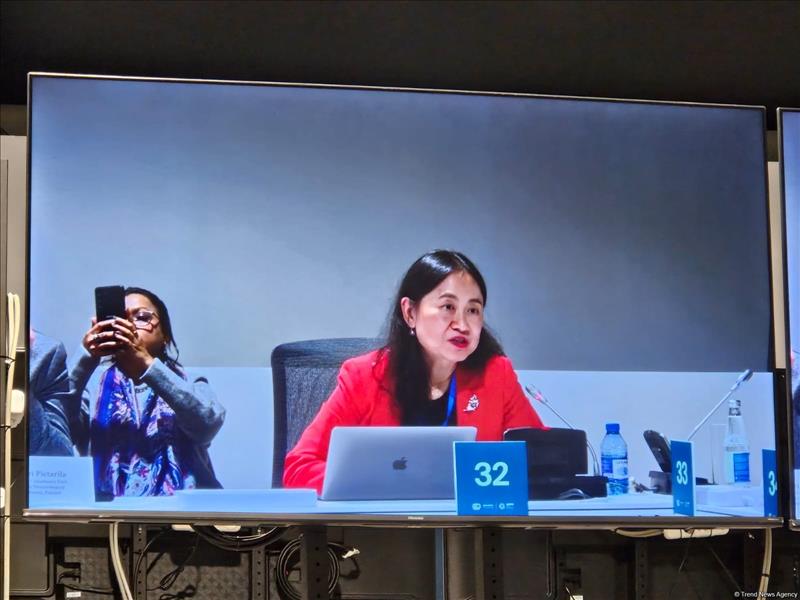
ADB To Launch Monitoring & Data Exchange System To Combat Climate Risks In Central Asia
She made the remark at COP29 High-level event on Strengthening Climate Information and Multi-Hazard Early Warning Systems for Increased Resilience today.
"This will help strengthen institutional capacities and coordination among countries in the region. Central Asia is highly vulnerable to various crises, including droughts, floods, earthquakes, and extreme weather events. Over the past 20 years, the region has incurred more than $1.3 trillion in losses due to floods and droughts, resulting in thousands of casualties," she also said.
The official emphasized that ADB is calling for regional cooperation in disaster risk reduction, disaster preparedness, and the development of adaptive strategies based on data to address climate challenges.
Yang highlighted that each country in the region faces its own unique challenges and opportunities, which requires different approaches.
"The lack of regional cooperation and integration seriously hampers the creation of transboundary early warning systems. This leaves the region and its populations vulnerable to transboundary issues, as disasters do not recognize national borders," she added.
To note, the 29th session of the Conference of the Parties to the UN Framework Convention on Climate Change (COP29), which will run until November 22, opened at the Baku Olympic Stadium on November 11. It is the largest event organized by Azerbaijan to date, and the first time in the region that it is being held in Azerbaijan.
Within COP29, the highest level event - the summit of world leaders on climate action - was held on November 12–13.
The main expectation from COP29 is to agree on a fair and ambitious New Collective Quantitative Goal (NCQG) on climate finance. The COP29 chairmanship has launched 14 initiatives that include linkages between climate action and the Sustainable Development Goals, including green energy corridors, green energy storage, harmony for climate resilience, clean hydrogen, methane reduction in organic waste, action on green digital technologies, and other topics.
In addition to being a top priority that creates the conditions for action, creating climate finance will also help fulfill the 1.5°C pledge by bringing everyone together.
The UN Framework Convention on Climate Change is an agreement signed at the Rio Earth Summit in June 1992 to prevent dangerous human interference in the climate system. The acronym COP (Conference of Parties) stands for“Conference of Parties” and is the highest legislative body overseeing the implementation of the Framework Convention on Climate Change.
A total of 198 countries are parties to the Convention. Unless otherwise decided by the parties, COP is held annually. The first COP event was held in March 1995 in Berlin, and its secretariat is located in Bonn.

Legal Disclaimer:
MENAFN provides the
information “as is” without warranty of any kind. We do not accept
any responsibility or liability for the accuracy, content, images,
videos, licenses, completeness, legality, or reliability of the information
contained in this article. If you have any complaints or copyright
issues related to this article, kindly contact the provider above.


















Comments
No comment